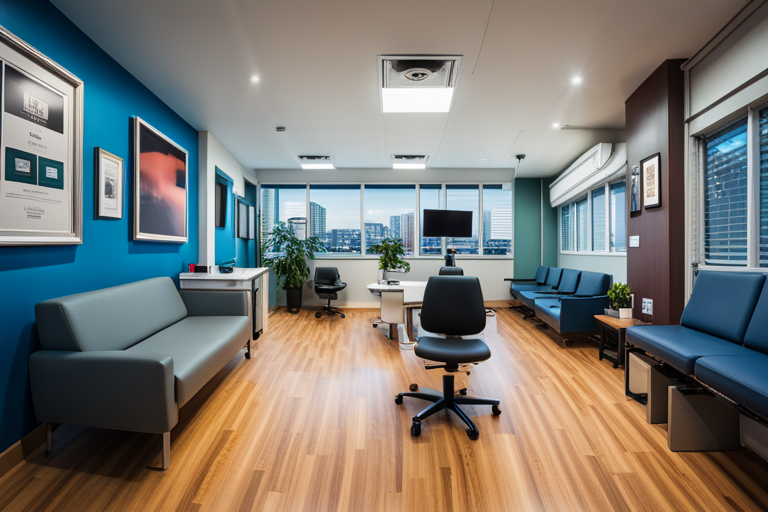Introduction
When it comes to our health, timely access to quality healthcare services is essential. However, not all medical situations require a trip to the emergency room, especially for non-life-threatening conditions. This is where urgent care centers play a vital role. In the United States, urgent care centers have become an important and convenient option for individuals seeking medical attention without the long wait times and high costs associated with emergency rooms. In this article, we will explore the important function of urgent care centers and how they provide efficient healthcare services for a wide range of medical needs.
Table of Contents
- What are urgent care centers?
- Convenient and efficient healthcare services
- Wide range of medical needs
- Timely access to medical professionals
- Cost-effective alternative
- FAQs
- Conclusion
What are urgent care centers?
Urgent care centers are medical facilities that provide immediate medical attention for non-life-threatening conditions. Unlike emergency rooms, urgent care centers are designed to handle minor injuries and illnesses that require prompt care but do not pose an immediate threat to life or limb. They are typically open beyond regular office hours, including evenings and weekends, to provide convenient access to medical care when primary care physicians may not be available.
Convenient and efficient healthcare services
One of the key functions of urgent care centers is to offer convenient and efficient healthcare services. With their extended hours of operation and walk-in appointments, urgent care centers provide a more accessible option for individuals who need medical attention outside of regular office hours. This means you don’t have to wait for days or weeks for an appointment with your primary care physician or endure long wait times in the emergency room for non-life-threatening conditions.
Moreover, urgent care centers are equipped with basic diagnostic equipment such as X-ray machines and laboratory facilities, allowing for timely evaluation and diagnosis. This enables healthcare professionals to provide immediate treatment plans, including prescription medications and referrals to specialists if necessary.
Wide range of medical needs
Urgent care centers cater to a wide range of medical needs, making them a versatile option for various conditions. They provide care for minor injuries such as sprains, strains, and fractures, as well as acute illnesses like colds, flu, and infections. Additionally, urgent care centers offer services for minor surgical procedures, vaccinations, and preventive care.
Whether you need stitches for a minor cut or require immediate treatment for a urinary tract infection, urgent care centers can address your medical needs efficiently and effectively. They are staffed with qualified medical professionals, including physicians, nurses, and medical assistants, who are experienced in handling a diverse range of medical conditions.
Timely access to medical professionals
Another important function of urgent care centers is to provide timely access to medical professionals. Waiting for an appointment with a primary care physician can take days or weeks, which may not be ideal for urgent medical needs. Urgent care centers offer immediate access to healthcare professionals who can evaluate your condition, provide a diagnosis, and recommend appropriate treatment options.
Whether you have a sudden illness or sustained a minor injury, urgent care centers ensure that you receive prompt medical attention. This quick access to healthcare professionals can help prevent the worsening of conditions and alleviate discomfort or pain.
Cost-effective alternative
Urgent care centers also serve as a cost-effective alternative to emergency room visits. Emergency room visits often come with high costs, especially for non-emergency situations. On the other hand, urgent care centers typically have lower fees and co-pays, making them a more affordable option for individuals without insurance or those with high deductibles.
By choosing urgent care centers for non-life-threatening conditions, individuals can save money while still receiving quality healthcare services. Additionally, urgent care centers often accept various insurance plans, further reducing the financial burden on patients.
FAQs
1. Is a visit to an urgent care center covered by insurance?
Many insurance plans cover visits to urgent care centers, but it’s always best to check with your insurance provider to understand your coverage. Urgent care centers often accept a wide range of insurance plans, making them accessible to individuals with different insurance providers.
2. Can I go to an urgent care center without an appointment?
Yes, urgent care centers usually accept walk-in appointments. You can visit an urgent care center without prior scheduling, allowing for immediate medical attention when needed.
Conclusion
Urgent care centers play a crucial role in providing convenient and efficient healthcare services for a wide range of medical needs. They offer timely access to medical professionals, cater to various conditions, and serve as a cost-effective alternative to emergency room visits. Whether you have a minor injury, acute illness, or need immediate medical attention outside of regular office hours, urgent care centers are there to provide the care you need. Consider visiting your nearest urgent care center for prompt and quality healthcare services when you require medical attention for non-life-threatening conditions.




